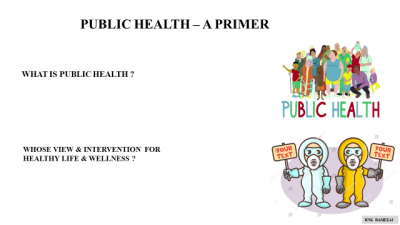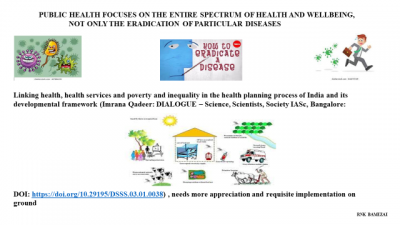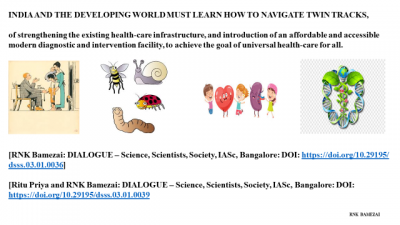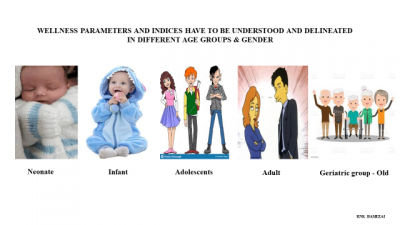Delhi School of Public Health (DSPH) proposes an interdisciplinary center of learning comprising of diverse, untouched, gap-areas in Public Health with the purpose to develop wellness, well-being strategies and technologies underpinned by social relevance and based on principles of quality and equity. DSPH proposes research in intertwined disciplines of Public Health with Science, Technology and Policy with the aim of proposing such course programs that enable learning outcomes with direct impact on community health. Concomitantly, DSPH would undertake collaborative programmes with University academic Departments and Centers to meet demands of changing health science research and strengthen interdisciplinary research in key areas of Public health in the country.
The excitement in biomedical sciences and molecular medicine is witnessing great strides in the area of Health Sciences and Precision Medicine. The need thus for knowledgeable and well- trained human resource for research in health sciences is evident. There is also a great concern that the number of students choosing sciences as a career option is decreasing rapidly. To keep the young talent motivated in pursuing their career in science-research, matching with the emerging needs of our society, has been evident in the paucity of trained molecular epidemiologists through COVID-19 experience.
DSPH envisages to inspire learners of various Certificate courses and in due course the integrated M.Sc.- Ph.D. programme to acquire knowledge and skill sets in areas of modern biology relevant to Public Health with an appreciation of psycho-socio-economic bearing.
Maharishi Kanad Postdoctoral Programme of IoE in DSPH. Know More
The Biomedical Sciences unit, based on its existing expertise in chronic disease, diagnosis and treatment, including research in diabetes, cardiovascular disease, respiratory disease and obesity, shall add Public Health related dimensions of molecular epidemiology and cost-effective diagnosis and prevention in the said diseases.
Maternal and child health, particularly during pregnancy and newborn care including research about domestic violence. Surveys looking for tangible outcomes for prevention would be the focus. Similar approach as mentioned would be adopted in the studies related to: Ageing, including dementia. Disability and mental health, including research in eating disorders, and physical wellbeing.
Neurological health, including therapy for people with stroke; research in neurological diseases, such as motor neuron disease.
Musculoskeletal health, including support for people peri- and post-operative; back pain; amputee research. Cancer, including diagnosis and therapy research, and lifestyle factors during treatment and post treatment, prophylactic rehabilitation to minimize treatment morbidity.





